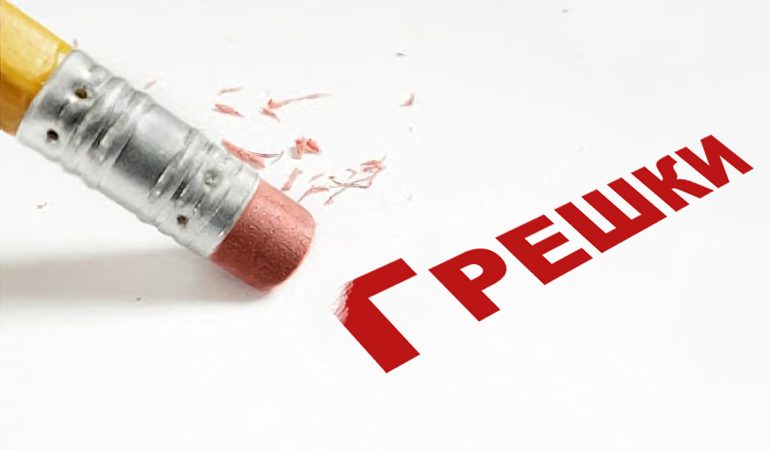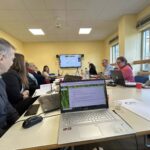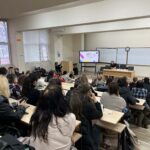Inclusive education requires special planning and hard work, especially now in the era of distance and hybrid learning. Even the most experienced teachers, who must invent new ways of teaching, make mistakes from time to time. Therefore, now is not the time to be critical of ourselves or others. Rather, we should acknowledge that mistakes will happen. The important thing is to accept the challenge and move forward.
Below are the 10 most common mistakes that can occur in the process of inclusive education:
1. Not Devoting Enough Time to Planning
Most teachers know there is never enough time to do everything needed. Still, successful inclusion requires intentional planning. This cannot be achieved quickly. Each of us is guilty of sometimes not dedicating the necessary time to plan the inclusion process in the best way.
2. Trying to Do Everything Alone
Building on the above, the best way to achieve inclusion is when teachers plan carefully and work together. There is no shame in asking for help sometimes. However, many teachers believe that seeking support or help is a sign of weakness or lack of competence. Many also think they must do it alone if they want it done right. Not doing everything by yourself and collaborating with others is not only normal but crucial for successful inclusion.
3. Assuming Successful Education Is the Same for Everyone
When we find strategies that work, it is easy to decide we can apply them all the time. The truth is, many students-especially those with special needs-require different strategies in different learning situations. Educators should have a whole “bag of options,” but also remember that using only one strategy will prove to be a mistake.
4. Assuming Adaptation Is the Same as Inclusion
It is indeed important to provide an appropriate and comfortable learning environment to ensure all students’ needs are met. However, simply adapting or modifying lessons does not mean inclusion. Inclusion is about belonging. Every student should be fully integrated into classroom life. Adaptation is an integral part of the process, but on its own, it is not enough.
5. Thinking Group Work Is the Same as Differentiated Instruction
Differentiated instruction is a methodology that allows students to progress at their own pace through activities suitable for their individual development. It offers a wide range of learning opportunities and experiences for each student. Simply assigning group work is not an effective form of differentiation.
6. Believing Fairness in the Classroom Is Achieved by Equalizing
It is not fair to think that everyone is equal. Fairness is when each person gets what they need to succeed. Students should not be compared to each other or evaluated as in a competition. Everyone should work for their own progress, starting from their current level.
7. Thinking We Can Create an Inclusive School Community Without Using Successful Special Education Programs
This is difficult for teachers to achieve, but ignoring it will not move the community forward. Inclusion advocates must raise their voices at every opportunity and persuade those who have not yet fully appreciated the value of inclusion. Resource teachers have a special place in the school community and can help colleagues and school leadership learn how to implement inclusive practices successfully. This may not be part of “your classroom work,” but it is an inseparable part of a teacher’s job.
8. Underestimating a Student
We have all done it: we have been surprised when a student achieves something we did not expect. Not that we wanted to underestimate our students, but sometimes we simply did not fully assess what they could achieve. As teachers, it is essential always to encourage our students to reach their highest potential, even if that potential is not yet fully revealed. This means expecting demonstrations of competence.
9. Not Practicing What You Preach
Perhaps you work in the field of education for children with SEN, but do not mind someone parking in a spot for people with disabilities because they say, “I’ll be right back!” Or you advocate for an inclusive environment at school, but then allow your own child not to invite a classmate with disabilities to a birthday party? We should strive to be just as inclusive in our personal lives as we are professionally. It is important to be consistent in modeling for our peers and children, not only in formal situations but also in everday life.
10. Reinventing the Wheel
Teachers too often create new materials and/or lessons that have already been successfully developed and used. Collaboration, sharing resources, and taking the time to find proven effective lessons will help you later have more free time to devote to the individual needs and problems of your students.
None of these mistakes make you a bad teacher! Rather, recognizing our natural human tendencies and our own limitations will allow us to grow both personally and professionally.
The day we stop learning is the day we should stop teaching!
November 2020, the article is published in an abridged version
Source: https://jewishspecialneeds.blogspot.com/2014/06/ten-inclusion-mistakes-even-good.html



